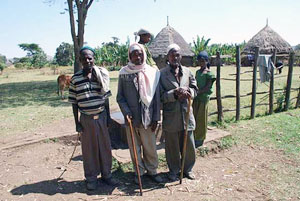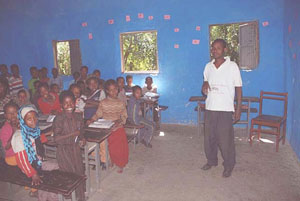Types of health team
In Primary Health Care management you will find that teams work best when they involve those people who are closest to the community in making decisions that are important for their community. Because teams like this include the most appropriate community members, the team will have the authority it needs to achieve its aims (Figure 4.3).

Formal teams are teams assembled to address a specific problem or issue, or to achieve specific health goals. An example of a formal team is a task force or committee.
A committee is usually a small, deliberately assembled group of people who are organised to consider and take decisions about a specific set of issues. These can be long-term or permanent teams designed to perform ongoing, specific organisational tasks. For example, as a Health Extension Practitioner you might form a committee composed of a model household representative, a kebele leader, a religious leader and representatives of community-based associations, such as a youth or women's group.
The members of a health team should work closely with workers from other sectors concerned with community health, such as teachers, agriculture extension workers, community devolvement workers and religious leaders (Figure 4.4).
